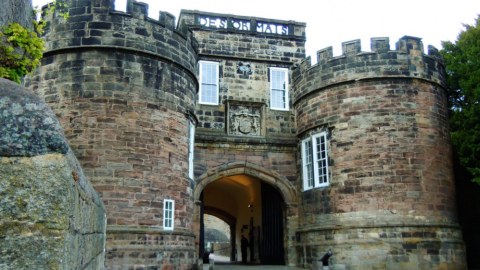Our History curriculum enables pupils to gain knowledge and understanding of the past within our own locality, our country and the wider world. They will learn about the complexity of peoples’ lives, the diversity of societies and the relationships between different groups of people in the past. Through a detailed study of key knowledge from different historical periods, pupils will also develop an understanding of abstract historical terms and specific vocabulary.
What our pupils will learn (intent):
At Cononley Primary School, we have developed our own scheme of work to deliver Understanding the World in EYFS (see Development Matters and EYFS Framework) and the National Curriculum for History throughout Key Stage 1 and 2. The scheme of work has a clear progression of substantive knowledge and vocabulary and links to other curriculum subjects. Our curriculum is planned around the following historical concepts: Conflict, Political, Social and Cultural and Economic. Progression in disciplinary knowledge (concepts such as chronology, change, cause and consequence, historical enquiry and interpretation) is integrated within the curriculum and developed alongside the substantive knowledge which the children learn each year.
Our school has some single age classes and some mixed-age classes; the class structures vary from year to year so our long term plan has been designed to be flexible, with a rolling programme in place. Schemes of work make explicit links to Historical topics and periods studied in previous years and key stages so that children are able to make connections and develop a chronological narrative.
How our pupils will be taught (implementation):
In EYFS, the building block of history are taught through Understanding the World; history based topics are taught in a block.
In Key Stage 1, History topics are taught in a block of lessons each half term.
In Key Stage 2, History topics are taught in weekly lessons in alternate half terms (alternating with Geography). This enables pupils to focus on aspects of particular topics for a greater period of time, allowing for greater depth of study, rather than teaching both History and Geography topics simultaneously.
Progression and Assessment in History
EYFS and Key Stage 1
Regular, ongoing observational assessments are made and recorded in the History Big Book. The History topic is revisited at regular intervals through the year (roughly at 2, 6 and 12 weeks after completing a topic) to ensure children remember what they have learnt. The information from teacher’s assessments contributes to an end of year summative assessment.
Key Stage 2
Ongoing assessments take place each lesson and the teacher addresses any gaps in knowledge. Short summative assessments known as 'sticky knowledge' checks take place every half term. This is in line with research showing that retrieval checks of knowledge at regular, spaced intervals (roughly at 2, 6 and 12 weeks after completing a topic) enable knowledge to be transferred to long-term memory. Progress is measured by children knowing and remembering more.
Impact
The impact of the curriculum will be reviewed (during the year and at the end of the year), through lesson observations, pupil voice, book scrutiny and assessments of pupils’ learning to identify how much knowledge they have gained and remembered over time.

